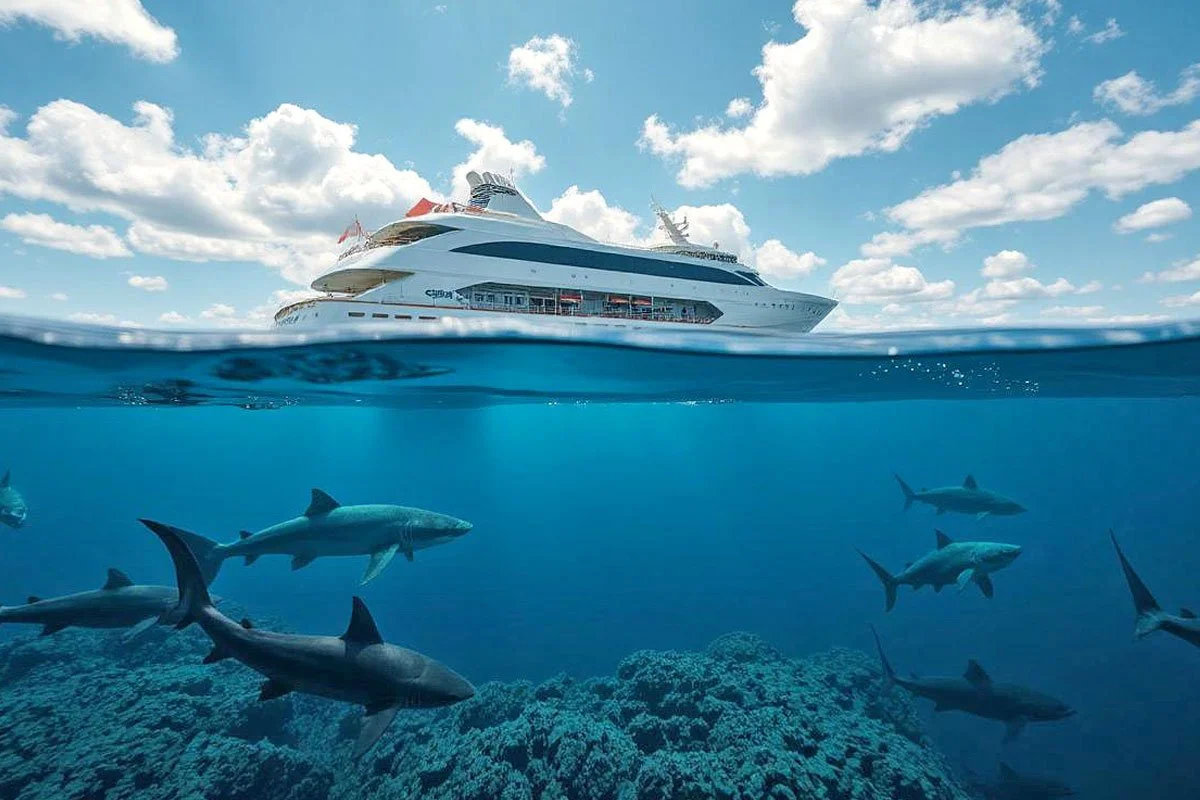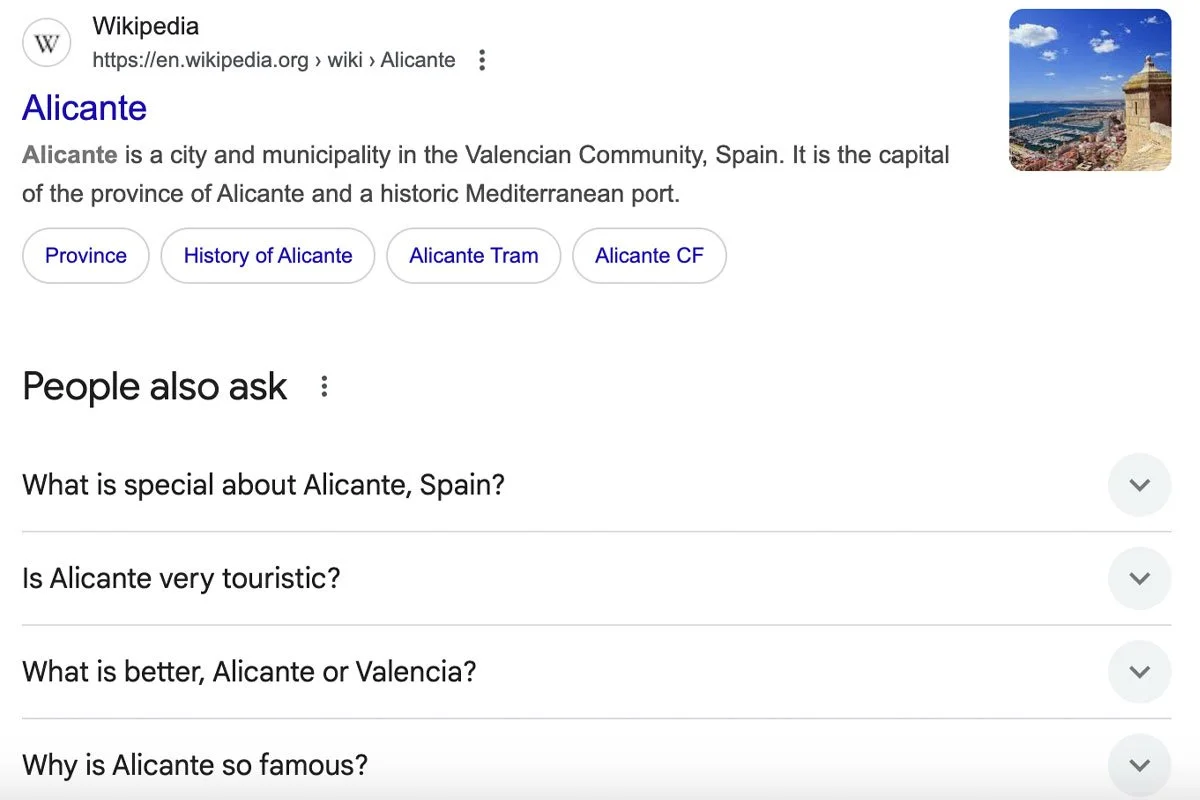The SEO Guide for Travel Agents
Winning the Search Game in a Saturated Industry
Travel agent (and agency) marketing is one of the most competitive industries on social media and digital platforms, meaning mastering search engine optimization (SEO) is essential to get found.
With thousands of travel brands all fighting for visibility, great photos and videos (and an equally impressive website) are not enough. Having these is table stakes and if you don’t have great imagery and style, you’re not even at the table. To win at the competitive search game (or to even be in the game), travel agents need a smart and focused strategy, refined content and a commitment to sharpened search optimization.
From destination keyword research to structured data and social media SEO, this guide breaks down the essentials of SEO success for travel brands—and how to outmaneuver your competitors organically.
There is a lot to unpack here if you are new to SEO, so don’t feel pressured to do it all at once. Learn, understand and start crafting thoughtful inputs as you move forward with your digital business.
1. Destination Keyword Research: Getting Specific with Your Inputs will Win the Day
Generic keywords like “best beaches” or “luxury hotels” are nearly impossible to rank for unless you’re Expedia or one of the other industry giants. Even then, there really isn’t much value in these generic keywords.
Instead, success in travel SEO lies in being very specific and targeting long-tail, geo-specific keywords with high intent. As travelers seek new and relatively untrodden experiences and destinations, specificity becomes more important.
Practical Tips for Smarter Travel Keyword Targeting:
Use Location + Intent: Phrases like “family-friendly resorts in Phoenix” or “hidden hiking trails near Big Bear” capture user intent and are less competitive.
Study User Generated Content (UGC) and Travel Forums: To get keyword ideas, look at what real travelers are searching for on Reddit, TripAdvisor, or even in places like YouTube or Instagram comments. These platforms are keyword goldmines for you to uncover, unlike anything that any SEO tool can offer.
Leverage Google’s Autocomplete and ‘People Also Ask’ Functions: This is one of my personal favorites. Type your base destination into Google and see what long-tail queries are being suggested. These often reflect high search volume and low competition opportunities, making them a great starting point for your SEO keywords.
Local SEO Matters: If you’re targeting in-destination travelers, optimize for “near me” searches with terms like “eco-tours near Queenstown” or “best vegan cafes in Reykjavik.”
Travel Content Tip: Get started by create a list of 50+ niche destination search queries that you can use to build a content calendar. This approach ensures that every blog post, website page, or travel guide you create targets a different SEO angle, without cannibalizing your own keywords.
2. Learn to Speak Google’s Language: Structured Data and Schema
If content is king, schema markup is the translator that helps Google understand your what you actually mean. Schema provides context to your content, enabling rich results for content such as reviews, FAQs and events—things that often boost visibility and click-through rates. While this approach is a little more advanced, it is worth understanding and implementing where it makes sense.
Key Schema Types for Travel Sites:
TouristAttraction: Ideal for content about landmarks, museums and must-see sights.
Hotel or LodgingBusiness: For accommodations, include address, pricing and amenities.
Event: Promoting a local festival or retreat? Use event schema to show dates and locations.
Breadcrumb: Helps search engines (and users) understand site hierarchy.
FAQ and HowTo: Boosts visibility with expandable results in search engine results pages (SERPs).
To make this approach a little easier, use Google’s Structured Data Markup Helper or a plugin like Schema Pro if you're on WordPress.
If you want to learn more, search something like “Schema markup for travel” and you will find a ton of useful information to follow.
3. Content Optimization: SEO-Driven Storytelling
Travel content has to do more than just provide information—it needs to inspire and motivate your audience. But even the most compelling travel stories won’t likely rank without strategic optimization.
Content SEO Best Practices:
Create Evergreen Destination Guides: Make your travel guide content unique by overlaying your unique value proposition (brand strategy). Include what to do, where to stay, when to go, how to get there and so on—all optimized with your long-tail keywords. But, most importantly, include your own POV in the content (not just rehashed facts like everyone else is doing). This content is still driving traffic, as it provides true value. When you add real life stories or context, it becomes more powerful.
Use Header Tags Wisely: Structure your H1, H2 and H3 tags on your website to outline your content and support keyword targeting. This one is often overlooked or not understood, but it is important.
Internal Linking: Link related posts and pages to boost SEO across your site. Google likes this as it helps to inform how content is related.
Optimize for Speed and Mobile: Travelers search on the go. Use tools like PageSpeed Insights or other site optimization platforms to test and improve load times.
Don’t Just Describe—Solve: A great approach is to focus on solving travel pain points: “best places in Lisbon for solo female travelers” or “how to avoid crowds in Santorini.” Google rewards relevance and helpfulness, particularly when you include personal stories as reference (see AI below).
4. SEO for Social Media: It’s Always Been There
Here’s a secret that savvy digital marketers have known for years: SEO isn’t just for websites. Social media platforms are search engines in their own right. From Instagram alt tags and captions, to Pinterest boards, optimizing your visual content makes you discoverable – and it has for a long time.
Social SEO Tactics that Matter:
Alt Tags on Images: These have long been underestimated. Using descriptive, keyword-rich alt tags on your social posts and blog images helps your content rank in Google Image search—a major traffic source in travel. Yes, it takes more work, but that’s what separates success from mediocrity.
Captions with Intent: Think beyond engagement. A well-written Instagram caption using targeted phrases like “sunset cruise in Dubrovnik” can be crawled and indexed.
Hashtag Strategy: Use destination-specific and interest-based hashtags. Avoid overly broad tags (#travel) in favor of mid-tier ones (#hiddenparis or #solotraveljapan).
Pinterest Boards with Keywords: Pinterest content often ranks on Google. In my own case, it outpaces every other social platform for referral traffic. Optimize board titles, pins and descriptions for destinations and travel styles.
If you’ve been treating alt text as a search signal since the early days of visual content, you’re already ahead of the game. Google’s vision AI has matured—image SEO is more powerful than ever.
An example of Google’s “People Also Ask.”
5. AI and SEO: Disruption, Opportunity and What Travel Brands Need to Know
Artificial Intelligence is rapidly reshaping the way people discover travel content—and the way search engines deliver it. From generative AI assistants to AI-powered search overviews in Google’s Search Generative Experience (SGE), the traditional click-through model is evolving.
Understanding where AI intersects with SEO can help travel marketers stay relevant—and ahead of the competition.
Where AI Is Changing the Game for Marketers:
Search Engine Behavior
Google’s SGE and tools like Bing Copilot are designed to provide direct, AI-generated answers to user queries—often without requiring a click. You see them at the top of the results page after almost every search query you make.
For travel brands, this means:
Less organic traffic for basic, fact-based queries (“best time to visit Italy”).
Higher competition for visibility within AI-generated answers.
The Opportunity: Focus on experience-rich, nuanced content that AI can’t easily replicate—personal stories, local expertise, insider tips and so on.
Content Generation
AI tools like ChatGPT and Jasper have made it easier to churn out travel content for anyone. But here’s the problem with relying on that approach (beyond the fact that it’s lazy): Google’s Helpful Content System prioritizes originality and authenticity. If your blog post sounds like a robot wrote it, it won’t rank.
One way to ensure that your content isn’t robotic is by including your own unique advice, travel stories and brand POV. This is what sets you apart from your competition and it will also set you apart from those who use AI to generate content and don’t bother to change a thing.
AI is a powerful tool and you should definitely use it as a part of your marketing output. But use AI to support research, create outlines, give new ideas or to repurpose existing content across many formats (social captions, refreshed blog posts and so on). Do not use AI to replace your unique voice or local expertise.
Image and Alt Text Automation
AI can now auto-generate alt text and image captions. If you have ever looked at what it produces, however, it’s usually pretty useless and confusing. Don’t rely on this and consider taking the time to do it right (by writing it yourself) to set yourself apart from everyone else. AI alt-text automation usually misses the nuance or the SEO strategy behind writing well-crafted descriptions. It usually tries to understand the image and describe it (and it’s usually a miss).
If you’ve already been writing descriptive, keyword-rich alt tags for social and blog images, you’re in a strong position. Keep refining them manually to maintain an SEO edge.
The Smart SEO Approach in an AI World:
Double Down on E-E-A-T: Experience, Expertise, Authoritativeness and Trustworthiness are Google’s north star. AI can’t mimic real-life experiences—and travelers and algorithms alike can tell the difference. So you can get a leg up by injecting your own experience into all the content that you create.
Think Like a Curator, Not Just a Creator: Use AI tools to help generate specific topic ideas, to identify gaps in your content and for similar brainstorming tasks—but build your content on personal insight, case studies and traveler pain points you know from experience or from your travel clients.
Optimize for Questions, Not Just Keywords: AI search is conversational. Structure your content to answer natural-language questions (“What’s the safest neighborhood to stay in Mexico City for families?”) and use FAQ schema wherever possible.
AI won’t likely replace travel SEO in the short-term—but it will replace those who don’t adapt to it. The brands that win in the next wave of search are those that will work to combine data-driven strategy with distinctly human storytelling.
Learning how to adapt what you do to each new search iteration has always been a requirement for digital marketing, long before AI came onto the scene. Keep on top of things and never take short cuts with tags, captions and other content.
Always Remember that it’s Not Just About Ranking—It’s About Results
SEO is the connective tissue between your brand, your content and your audience online. It's not about gaming the system (it’s hard not to stumble across that type of content on TikTok); it’s about serving the right content to the right traveler at the right time—and taking the time to set yourself up for success in the first place.
Winning the search game takes patience, precision, thoughtful intent and a deep understanding of traveler and search behavior. But with the right mix of smart keyword research, technical optimization and relatable content that earns trust, you won’t just climb the rankings—you’ll become a resource that travelers can rely on. It’s not a quick win, but it’s worth the effort in the long run.
Need help refining your travel SEO strategy?
As a travel marketing coach, I’ve helped luxury and lifestyle travel brands win at organic search—and I can help you do the same. Feel free to contact me to learn more.
By Mike Belobradic | Travel Marketing Coach



